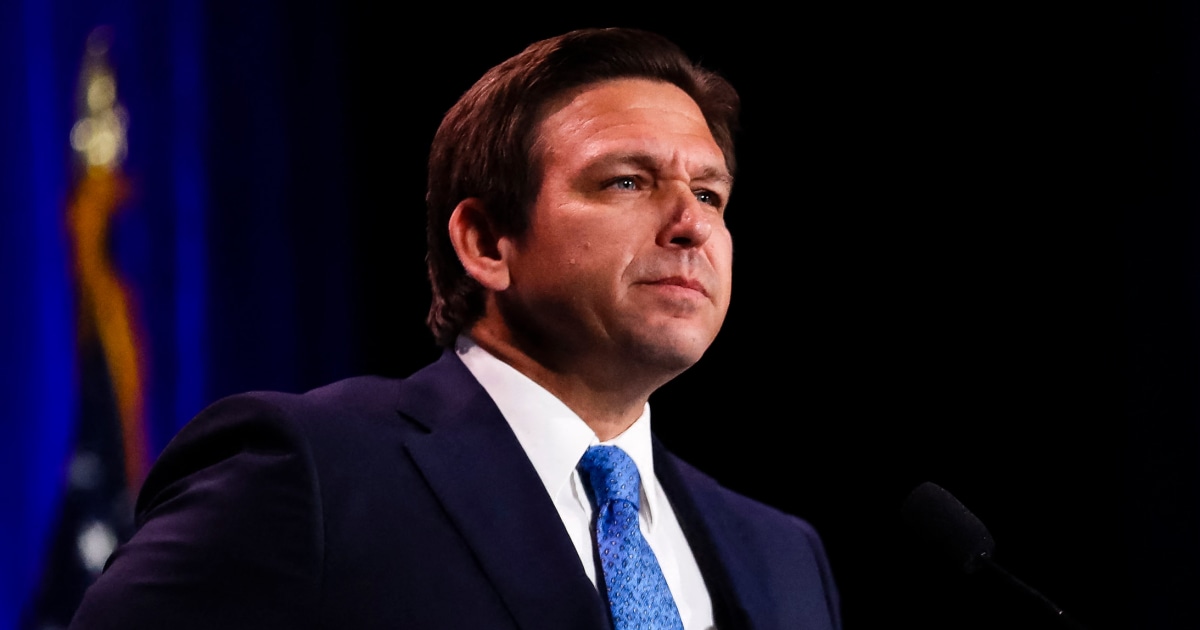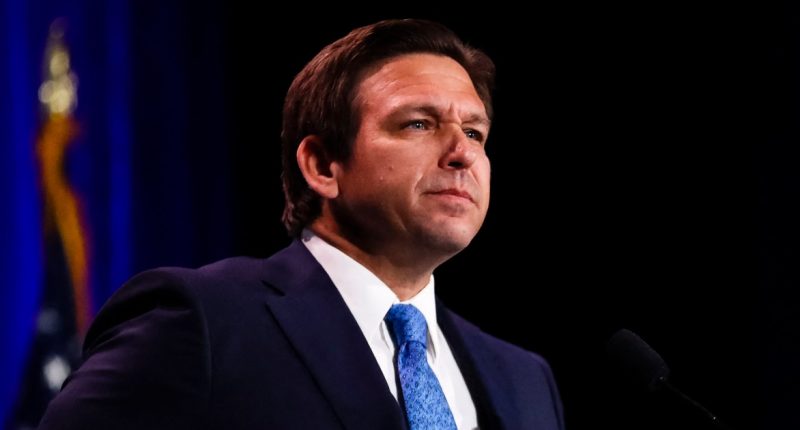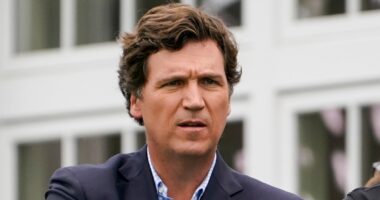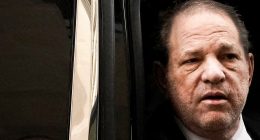
Never Back Down, the super PAC backing Florida Gov. Ron DeSantis’ presidential campaign, has ceased its door-knocking operations in Nevada, home to a key early nominating contest, and California, a delegate-rich Super Tuesday state, officials confirmed Wednesday.
They added that in recent weeks, the group also ended its field operations in North Carolina and Texas, two additional states that vote on Super Tuesday in March.
Never Back Down had pitched a wide-ranging canvassing effort throughout the early nominating states as the centerpiece of its effort to help boost DeSantis in the primary — even letting reporters inside its door-knocking boot camp in Iowa where it trained hundreds of canvassers earlier this year. The super PAC had planned to spend $100 million on the effort.
The decision to fold its door-knocking operations in Nevada and some Super Tuesday states coincides with DeSantis’ rough summer, which has featured him struggling to gain traction against the GOP front-runner, former President Donald Trump, since launching his campaign in late May. In recent weeks, DeSantis’ campaign has publicly promoted resets and staff shake-ups as he seeks to generate momentum.
At its peak, Never Back Down employed more than 250 field staffers in those four states, though some had departed prior to the shutdown. In recent weeks, some of those who were assigned to the areas where there are cuts were offered opportunities elsewhere, including on door-knocking teams stood up by the super PAC in Iowa, New Hampshire and South Carolina — early nominating states where the pro-DeSantis allies continue to knock on doors — officials said.
“We want to reinvest in the first three,” Erin Perrine, a spokesperson for the super PAC, told NBC News, nodding to Iowa, New Hampshire and South Carolina and noting that it is ramping up its spending on advertising. “We see real opportunities in the first three. The first three are going to set the conditions for the March states.”
What’s more, super PAC officials said the decisions to pull out of Nevada and California were driven by what they see as pro-Trump efforts to tilt the primary rules in his favor and make it less likely that a rival could knock him off.
In Nevada, the Democratic-dominated Legislature revamped its presidential primary system, eliminating caucuses in favor of a traditional state-run primary. The move stemmed from a push by the Democratic National Committee to move away from caucuses in 2024. The Nevada Republican Party, however, has pushed back on the change, demanding to hold a party-run primary anyway.
It took the matter to court, where a Carson City judge denied the GOP bid, saying it could not block a state-run primary. The party now is appealing the matter to the state Supreme Court. A caucus run by the state party is considered advantageous to Trump, given that several members of the party acted as false electors for him in 2020, and some earlier this year traveled to Mar-a-Lago.
Perrine blasted Nevada GOP Chairman Michael McDonald as a “Trump puppet” who is “conducting that caucus/primary, primary/caucus routine that he’s doing.”
“When you have that kind of uncertainty about how the election’s going to be conducted, that becomes a pretty unstable environment to be investing the kind of resources that we’re investing,” she said.
McDonald did not immediately respond to a request for comment.
And in California, the state Republican Party late last month changed the delegate-allocation rules in a change that was backed by the Trump campaign and may make the state less competitive in March, The Los Angeles Times reported.
Previously, delegates were awarded by congressional district. Under the new rules, a candidate who wins more than 50% of the vote will take all 169 delegates — the most of any state in the nation. Should no candidate hit 50%, the delegates will be awarded proportionally but based on statewide vote, not via congressional district.
Perrine described this change as “making grassroots involvement impossible” and called it a “Trump-inspired rigging,” though she expressed some hope that the state party could alter the rule at its convention in September — during which both Trump and DeSantis are scheduled to speak.
“And so with neither state having a fair process,” she said, “we decided to make [the door-knockers] kind of refocus into the first three.”
Responding to the NBC News report, Chris LaCivita, a senior adviser to Trump’s campaign, mocked the super PAC as “ABD” or “Always Back Down,” adding that the move by the pro-DeSantis allies shows they are “realizing what we have known all along and is borne out every day in another poll, Donald Trump is the overwhelming pick of Republicans across the country to take on and defeat” President Joe Biden.
“No amount of charts and darts and fancy sales pitches pushed by ABDs long list of super PAC consultants will change that,” he added.
Three other sources familiar with the decision also confirmed that Never Back Down was ending its door-knocking effort in Nevada, with one person saying the rollback extended to Super Tuesday states, though efforts in Iowa, New Hampshire and South Carolina remained intact. That person said door-knocking was ending in those states for now as the super PAC sought “more impactful tactics.”
In mid-July, Never Back Down officials said the group was committed to both an early state strategy and heavy investments in the March primary contests — including the 14-state Super Tuesday slate. Kristin Davison, chief operating officer for Never Back Down, said the group was ready to insert 80 newly trained field operatives into California while PAC officials touted the doors they knocked across Texas, North Carolina and the states that hold the first four contests in the presidential primary.
Super PAC officials told NBC News that while they no longer have a door-knocking presence across Super Tuesday states, they continue to employ political teams on the ground in states that hold nominating contests through the end of March. They added that super PAC-affiliated door-knockers had already mostly been able to complete a pass-through of these no-longer covered states — hitting targeted doors — and that they may stand up teams there again at a later date.
“We’ll go back closer to the March primary states’ dates,” Davison said. “After the New Year, we’ll probably start building them out again.”
Republicans involved in canvassing have preached its usefulness in interviews with NBC News, while high-dollar donors have been willing to open their wallets to fund such efforts. But, as more than a dozen insiders with experience in GOP-aligned field operations — in addition to internal data obtained by NBC News — detailed earlier this year, those large-scale conservative canvassing efforts have been plagued with issues, including fraudulent and untrustworthy data entries, that called into question just how useful the practice is.
Source: | This article originally belongs to Nbcnews.com









